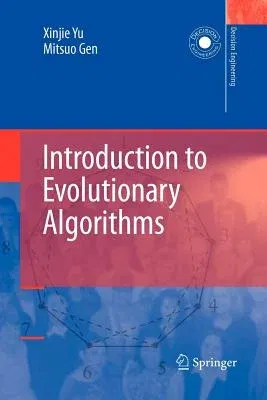Evolutionary algorithms (EAs) are becoming increasingly attractive for
researchers from various disciplines, such as operations research,
computer science, industrial engineering, electrical engineering, social
science, economics, etc. This book presents an insightful,
comprehensive, and up-to-date treatment of EAs, such as genetic
algorithms, differential evolution, evolution strategy, constraint
optimization, multimodal optimization, multiobjective optimization,
combinatorial optimization, evolvable hardware, estimation of
distribution algorithms, ant colony optimization, particle swarm
optimization, artificial immune systems, artificial life, genetic
programming, etc.
It emphasises the initiative ideas of the algorithm, contains
discussions in the contexts, and suggests further readings and possible
research projects. All the methods form a pedagogical way to make EAs
easy and interesting.
This textbook also introduces the applications of EAs as many as
possible. At least one real-life application is introduced by the end of
almost every chapter. The authors focus on the kernel part of
applications, such as how to model real-life problems, how to encode and
decode the individuals, how to design effective search operators
according to the chromosome structures, etc.
This textbook adopts pedagogical ways of making EAs easy and
interesting. Its methods include an introduction at the beginning of
each chapter, emphasising the initiative, discussions in the contexts,
summaries at the end of every chapter, suggested further reading,
exercises, and possible research projects.
Introduction to Evolutionary Algorithms will enable students to:
- establish a strong background on evolutionary algorithms;
- appreciate the cutting edge of EAs;
- perform their own research projects by simulating the application
introduced in the book; and
- apply their intuitive ideas to academic search.
This book is aimed at senior undergraduate students or first-year
graduate students as a textbook or self-study material.

